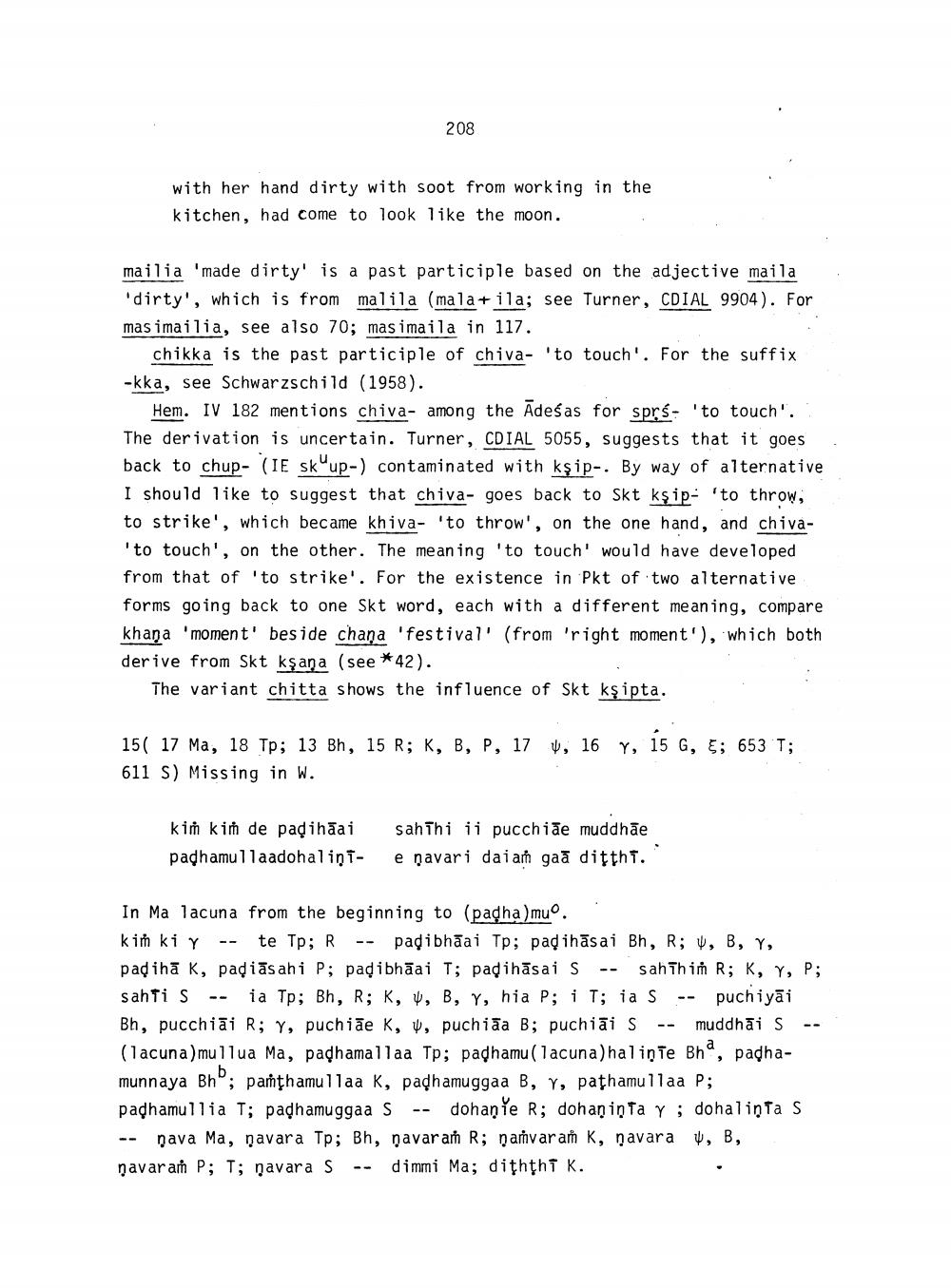________________
208
with her hand dirty with soot from working in the kitchen, had come to look like the moon.
mailia 'made dirty' is a past participle based on the adjective maila 'dirty', which is from malila (mala+ ila; see Turner, CDIAL 9904). For mas imailia, see also 70; mas imaila in 117.
chikka is the past participle of chiva- 'to touch'. For the suffix -kka, see Schwarzschild (1958).
Hem. IV 182 mentions chiva- among the Adeśas for sprś= 'to touch'. The derivation is uncertain. Turner, CDIAL 5055, suggests that it goes back to chup- (IE skup-) contaminated with kşip-. By way of alternative I should like to suggest that chiva- goes back to Skt kşip- 'to throw, to strike', which became khiva- 'to throw', on the one hand, and chiva'to touch', on the other. The meaning 'to touch' would have developed from that of 'to strike'. For the existence in Pkt of two alternative forms going back to one Skt word, each with a different meaning, compare khaņa 'moment' beside chana 'festival' (from 'right moment'), which both derive from Skt kşaņa (see *42).
The variant chitta shows the influence of Skt kşipta.
15( 17 Ma, 18 Tp; 13 Bh, 15 R; K, B, P, 174, 16 Y, 15 G, 5; 653 T; 611 S) Missing in W.
kiñ kin de padihāai padhamullaadohaliņi-
sahihi ii pucchiae muddhāe e navari daian gaā dittht.'
In Ma lacuna from the beginning to (padha )muo. kim ki y -- te Tp; R -- padibhāai Tp; padihāsai Bh, R; U, B, Y, padihā k, padiāsahi P; padibhāai T; padihāsai S -- sahihi R; K, Y, P; sahti S -- ia Tp; Bh, R; K, 4, B, Y, hia P; i T; ia s -- puchiyai Bh, pucchiai R; Y, puchiae K, y, puchiĪa B; puchiai S -- muddhāi S -- (lacuna)mullua Ma, padhamallaa Tp; padhamu(lacuna)haliņie Bho, padhamunnaya Bh; pamthamullaa K, padhamuggaa B, Y, pathamullaa P; padhamullia T; padhamuggaa S -- dohanie R; dohaninta y ; dohalinta S -- nava Ma, navara Tp; Bh, navaram R; naṁvar am K, navara , B, navaran P; T; ņavara S -- dimmi Ma; diththt K.




